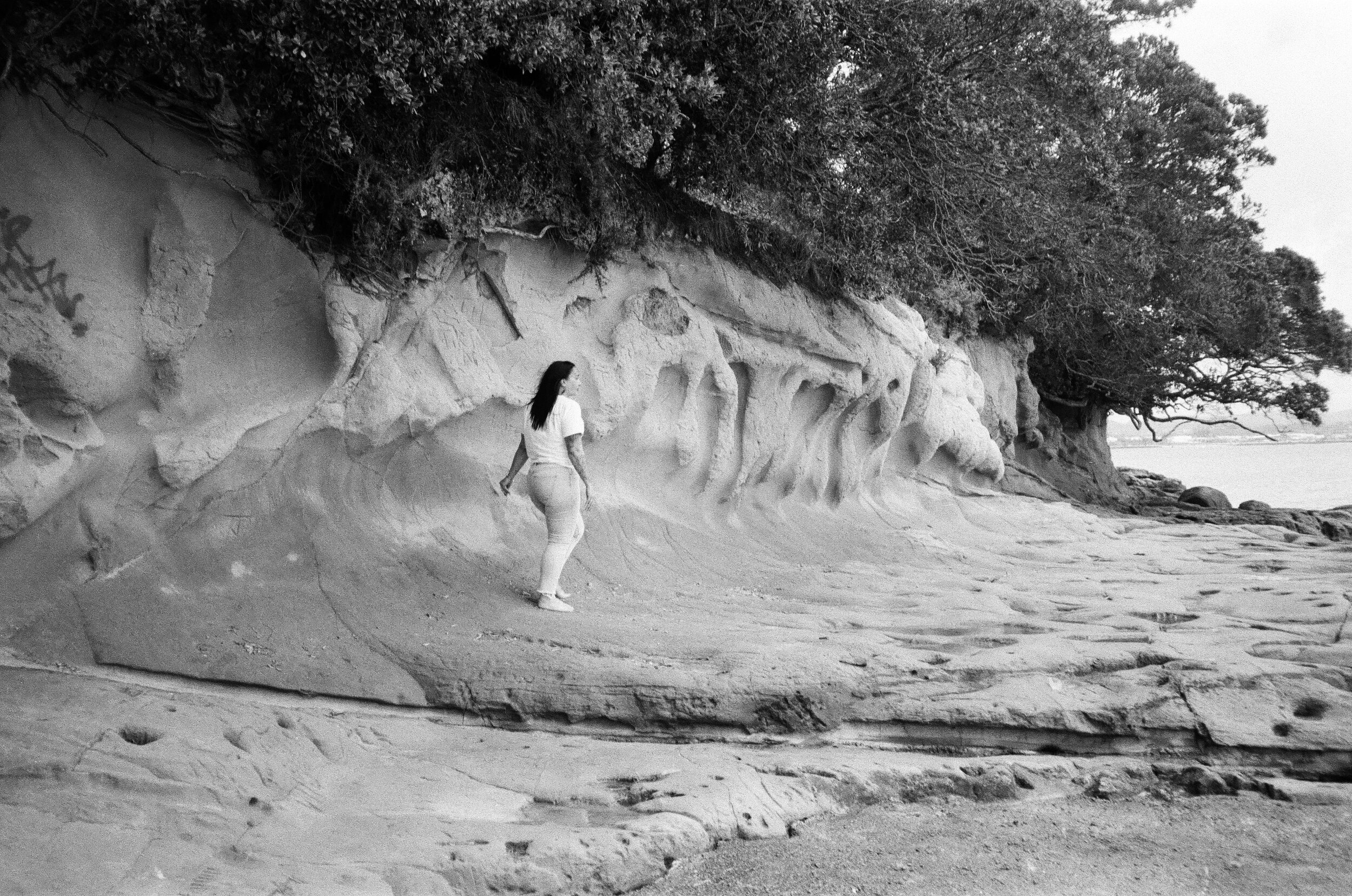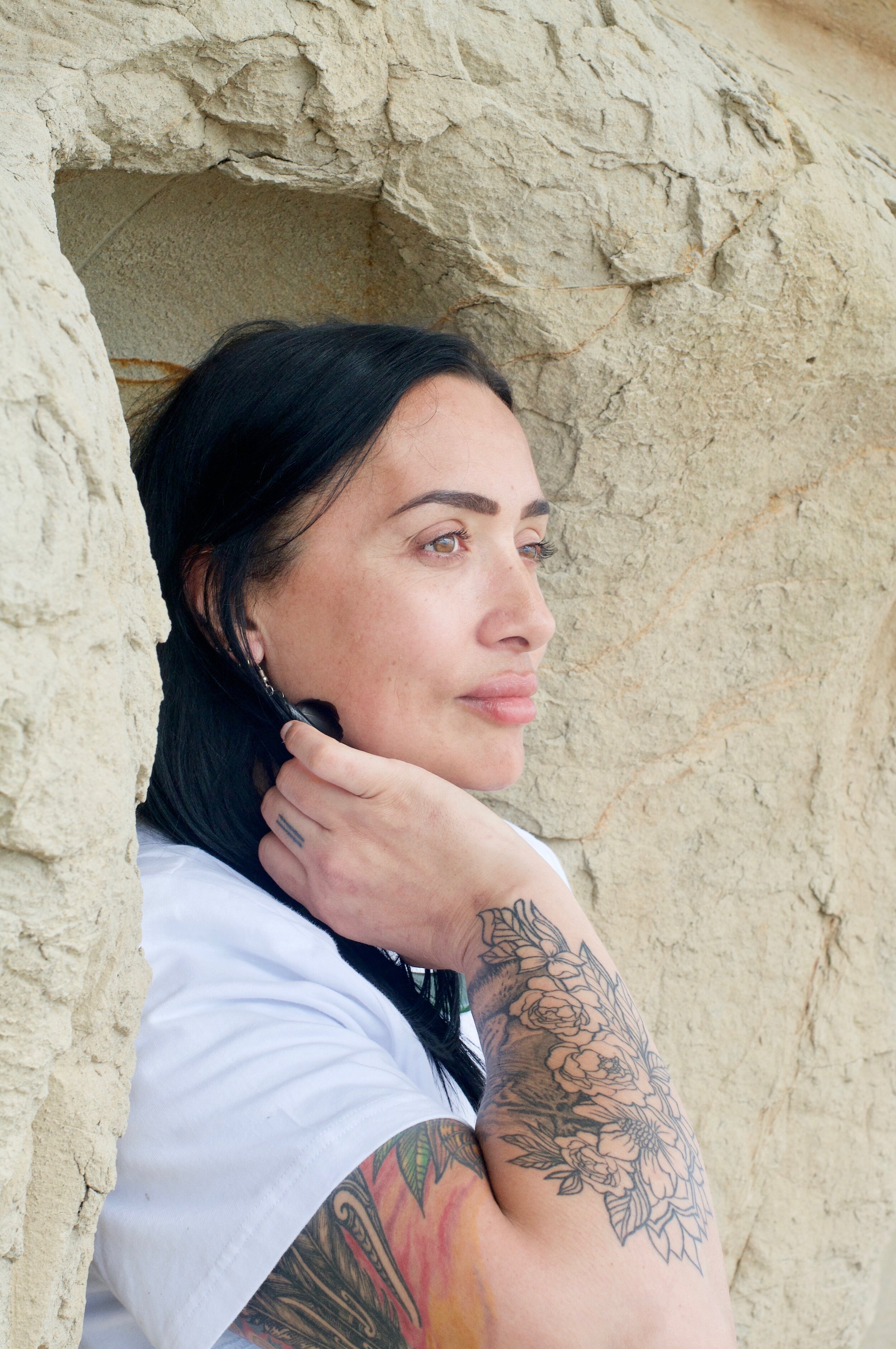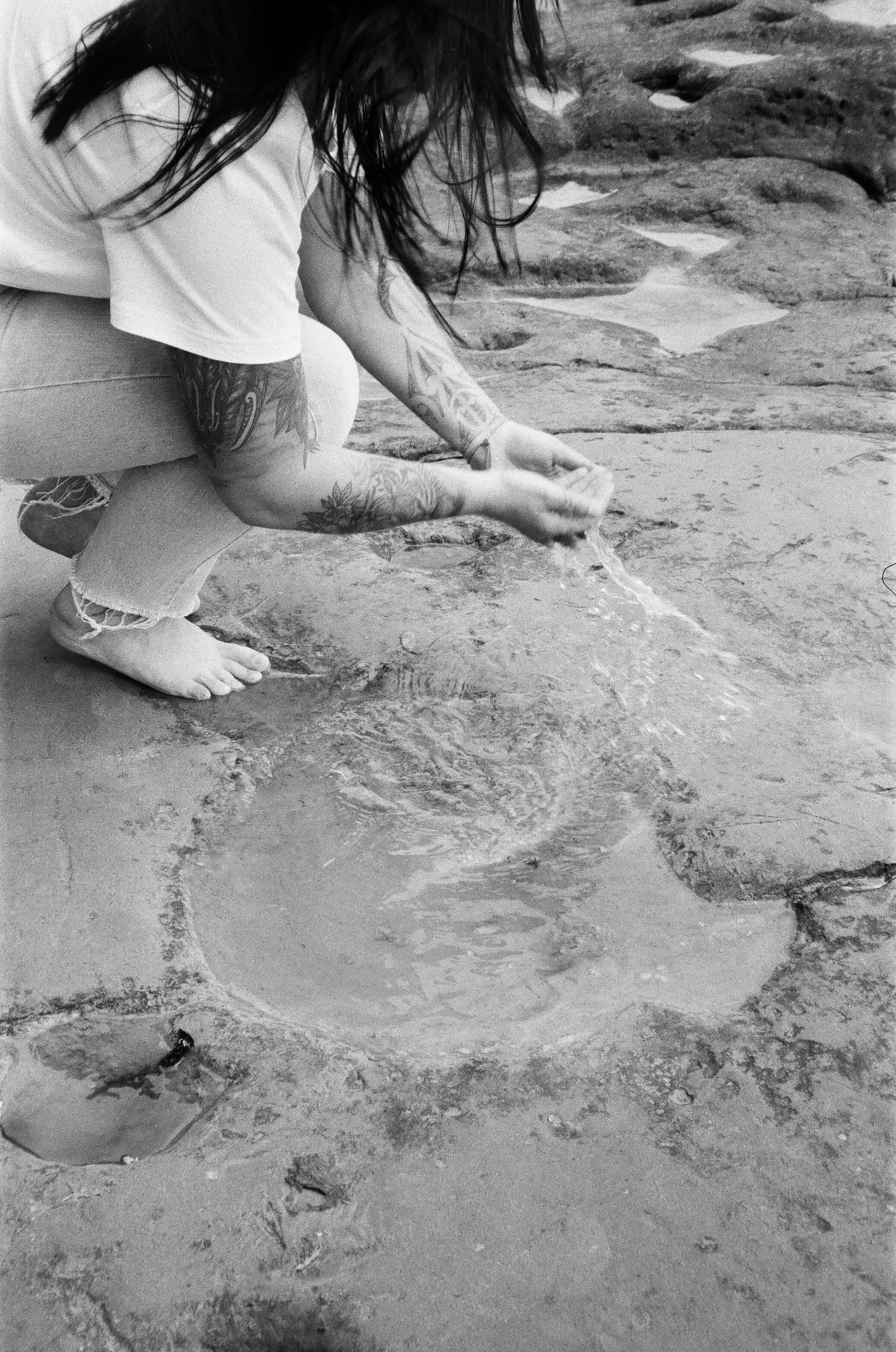Tracey Tui on a mother’s love, strength and self-worth.
The fierce middle child, with one older sister and two younger (twin) brothers, Tracey Tui grew up in a neighbourhood in Taranaki where all of the kids ran amok together, playing outside until the streetlights came on.
“I think the biggest aspect that my childhood showed me, and has carried forth into my adult years, is that we don't need a lot to be happy”.
Born into a seemingly nuclear family, to a Māori mother and a Pākehā father, her mum Tui was the carer and the nurturer: “She was the protector, the pou - she was a pretty amazing woman. Our father was the worker, whose dinner was served when he arrived home from work, who never done the dishes, who carved the meat that Mum had cooked and would sit there in front of the 6pm news scoffing at the ‘bloody maaaaaaris’ that often appeared.”
“Casual racism was pretty normal in our home and it affected me a lot as I got older.”
Tracey’s teenage years revolved around sport: “Playing sports was life and weekends were usually spent at Ngāmotu Beach with the whānau and whānau friends or down at the netball courts with all the other kids whose mums were heavily involved in prem netball.” And like her mum, she aspired to become a nurse when she ‘grew up’.
Tracey became a mother at 20, an unexpected carer to her beloved mum at 24 and then, at 27, made one of the biggest and bravest decisions she’d ever have to make. Here, Tracey shares her story of a mother’s love, loss, strength, determination, self-love and self-worth.
BC: You had your son Flynn at a young age. What kind of support did you have at the time and how would you describe those early years?
TT: I did! I was 19 when I got pregnant and 20 when I had him.
I had my mum. My family, my cousins, my aunties - I had a lot of support. I lived with my parents when I had Flynn and while I was a solo mama, Flynn's dad and his family were also really supportive. I was very lucky and blessed. My mum was a nurse and I had the most amazing midwife, I never remember feeling like I didn't have support. We lived in Papamoa and his dad in Taranaki, but he was always there when he could be.
Even my younger brothers were supportive, I remember so vividly after mum had gone back to work, (she took leave to help me when Flynn was born) Flynn had spent the day crying his arse off and I was in tears too. My poor 15 year old brother was at home with me and a screaming baby. His ever so scared and cautious pats on the back while I sat there bawling, wondering what to do with a screaming child, didn't go unnoticed.
Mum encouraged me to go to work once a week for my own sanity, she watched Flynn while I did that and she later encouraged me to work as a health care assistant at the rest home she was charge nurse at; then again, later on encouraged me to apply to nursing school which I did at the tender age of 22.
BC: At 27, you moved to Melbourne. What influenced that decision?
TT: Well, I had not long buried my mum, was homeless and had a 7 year old son.
I'll catch everyone up.
After I applied for nursing school and got accepted, my mum was diagnosed with ovarian cancer. She was initially given 3-6 months to live, but stayed with us a whole three years before she passed away.
I didn't go to nursing school. I stayed at home, worked part time, helped to look after mum, spent a lot of time in hospice with her and raised my son. At the time we all just did what was needed for Mum, but once she was gone, everything kind of stopped and unravelled, things were not great.
My father made some decisions that affected everyone's lives, he chose to enter into a relationship with a hospice staff member a mere three months after Mum’s death - and while everyone has a right to their own happiness, that one didn't go down too well with four severely grieving kids. I was still at home at that point, looking after dad, making sure he was fed and had clean undies, but after that discovery, I packed up mine and my son's belongings, arrived at my best friend’s house and asked if we could crash.
I quickly realised I was not in a good place mentally or financially, had no house, little belongings and no idea where and what I was going to do. Without discussing it with anyone else, I called up Flynn’s dad and asked if he would take him. I didn’t know how for long, I just knew I couldn't be the mother my son needed at that time. I was so lucky and thankful that I had his dad to call upon with no questions asked to help support me and our son.
Which led me to Australia - my brother was over there at the time and I just wanted to get away.
BC: How did leaving Flynn in New Zealand affect your emotional wellbeing?
TT: In every way, shape and form. It affected every ounce of my wairua, my mana, my ngakau, my confidence. It impacted me greatly, in a negative way. For a good seven years I struggled with my choices, doubted my ability as a mum, as a woman and often asked myself “what kind of mother would leave her child?” I now know that I made the best decision for him at that time but I struggled for years.
“Depression, anxiety, panic attacks and many suicide attempts, that I’m pretty sure not many people know about to this day. I was very silent in my struggles.”
BC: After a decade in Australia, you decided to follow your heart, return home to Aotearoa and retrain as a nurse. What inspired the career change?
TT: After four years in Melbourne and six years on the Gold Coast, I had worked in various call centres and made my way up to a business analyst. I had healed, I had made peace, I had overcome depression, I had Flynn come to Australia and spend a year with me, I had found fitness, lost a lot of weight (and friends). I was making a lot of money but still wasn't excited about waking up in the morning. I wasn't passionate about what I was doing and was craving something more meaningful.
It was actually my son's dad that asked me if I wanted to come home. He asked me if it was something that I had thought about and that he and his wife offered their unwavering support if that's what I wanted to do.
And it was. I got a fire in my belly and was excited about life again. I started planning and saving. I was now 35 and still wanted to be a nurse. I did a few online courses to get my credits up and some foundations going, saved every last penny and booked a one way ticket home, and now, here I am, a nurse. 100% inspired by my mum.
BC: Since being back in New Zealand, you have been working frontline, vaccinating New Zealanders through a very emotional and high pressure pandemic. What do you do for your own self care?
TT: Everything I can! I have learned over the years what I need on a very basic level to thrive - I never want to simply ‘survive’ ever again!
Uninterrupted coffee in bed in the morning. Skincare! It's something I really enjoy doing, so having the time to do my skincare routine is a big act of self care for me. Daily check-ins with my partner - beyond the chat about our days, but more ‘how are we feeling today? Is there anything we need from each other’, weekly group video calls with my siblings, nieces and nephews, best friend chats and of course, check-ins with my son.
BC: What kind of role has therapy played in your life?
TT: Traditional therapy isn't something that worked for me long term, I think I've been to about three sessions total over the years, however I will always be an advocate for it as we don't always have the tools to figure things out on our own.
I turned to books, podcasts, listening to other people’s stories and really just trying different things until I found what worked.
“The gym was big therapy for me, it taught me a lot of discipline that I was able to carry over into other aspects of my life.”
BC: What does happiness mean to you?
TT: Having the freedom to live my life without self imposed emotional consequence.
Interview by Bonny Co. | Images Yasmine Ganley | Connect @soulbiird






